Ah, Merkaz HaCarmel, the crown jewel of Haifa, where Arabic channels unfriendly to Israel have found the perfect vantage point to cover the ongoing war between Israel and Hizbollah. Why risk it all in the chaotic streets of Beirut or the crumbling remnants of Gaza or still burning Hodeida oil terminals when you can enjoy five-star luxury with panoramic views of the Haifa bay while rambling about “Hizbollah resistance fighters bravely opposing zionist colonizers”? The contrast is, of course, a delicious irony — reporting on war, conflict, and destruction from a place that offers impeccable room service, fine dining, and a sense of calm far removed from the actual battlefields.
It’s hard not to chuckle when you see reporters with somber faces in front of cameras, passionately condemning destruction of Beirut, or the very real threat of missiles to the north of Israel, while they stand perched on one of the safest locations in the region. Their blue press vests might scream “we’re in the heart of danger,” but really, they’re just steps away from a cappuccino at the hotel lobby and hotel shelter.
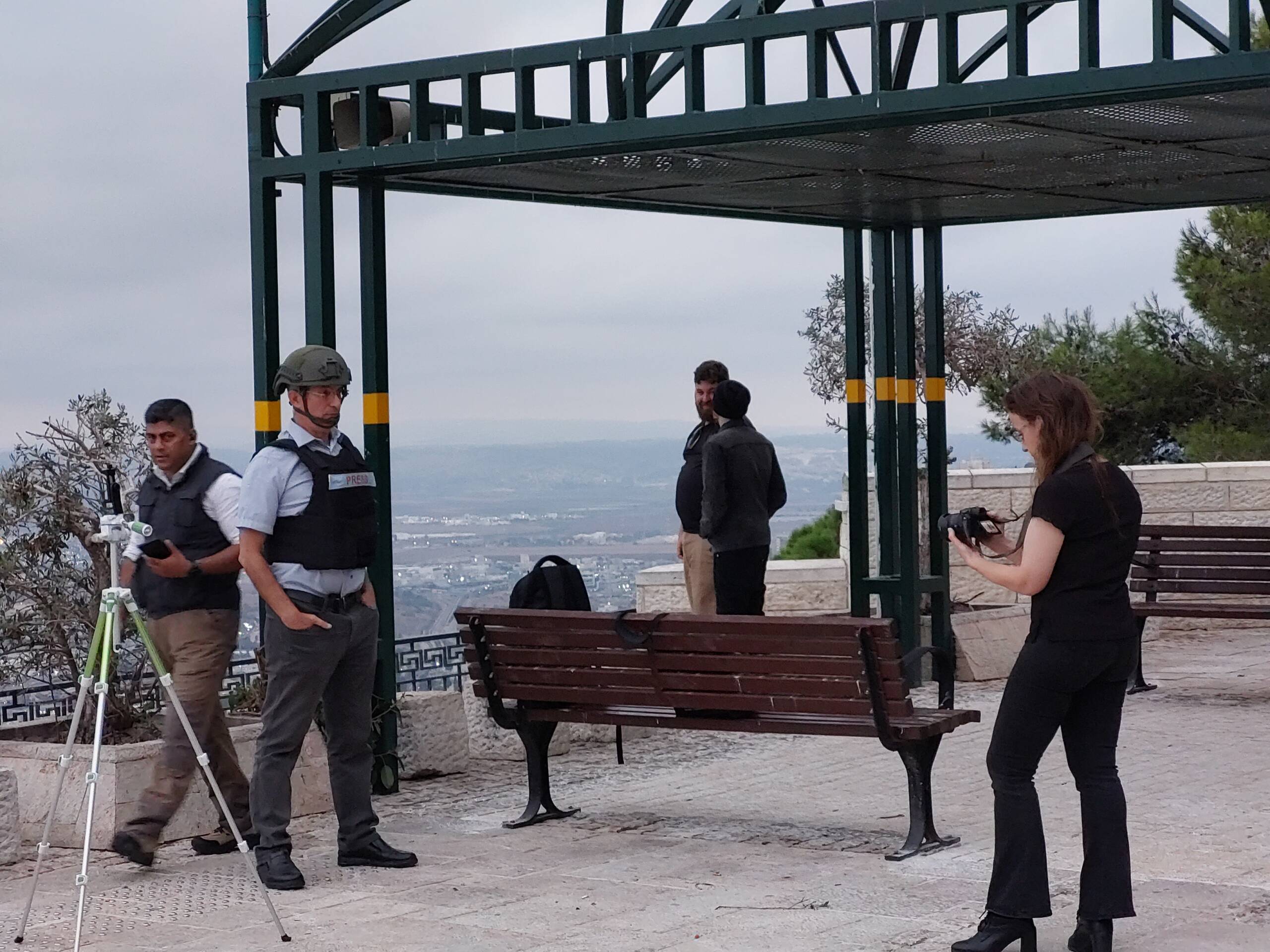
Correspondent of India Today in helmet and bullet-proof vest pretending that he reports from the active war zone.
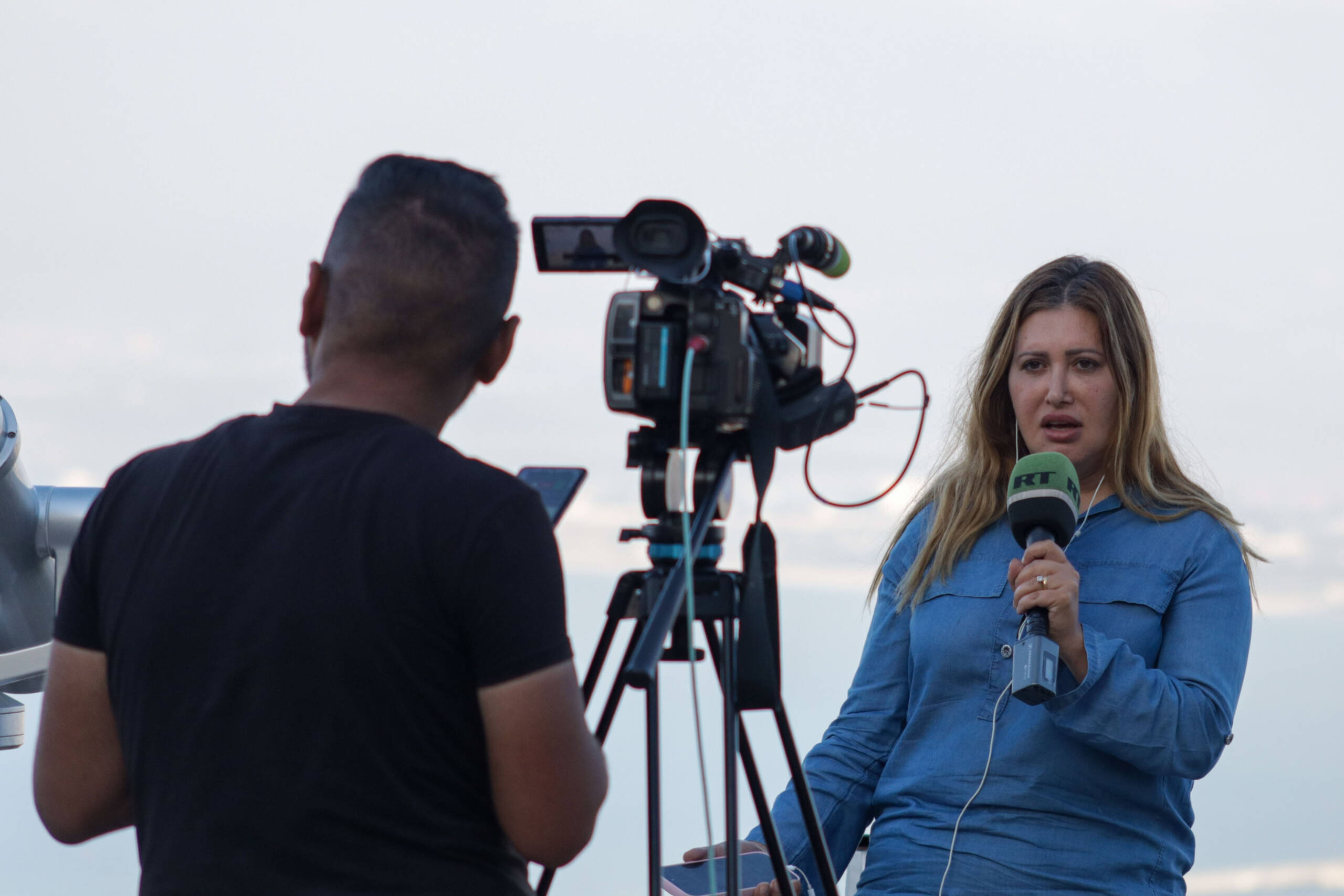
Dalia Nammari reporting from Merkaz HaKarmel, Haifa, RT Arabic
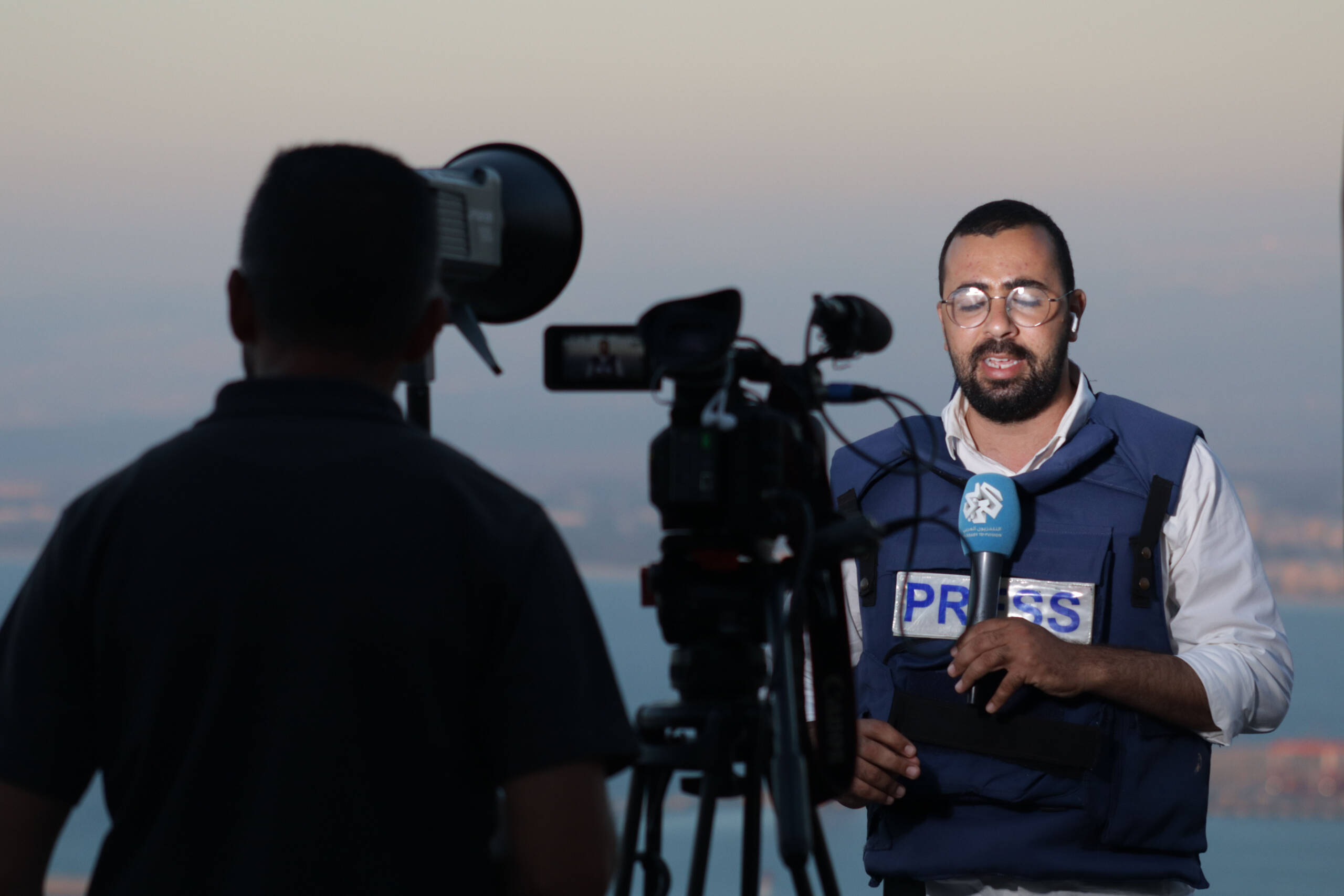
Al Araby, Qatar
Haifa, with its tranquil Carmel mountain breeze, feels a world apart from the tense borders, yet here are these intrepid journalists braving the relative ‘danger’ of the balcony views. The sea sparkles in the background, and, if they tilt their cameras just right, the viewers back home might even catch a glimpse of the stunning Mediterranean stretching beyond the bay, almost as if it too is mocking the idea that these reporters are anywhere close to danger.
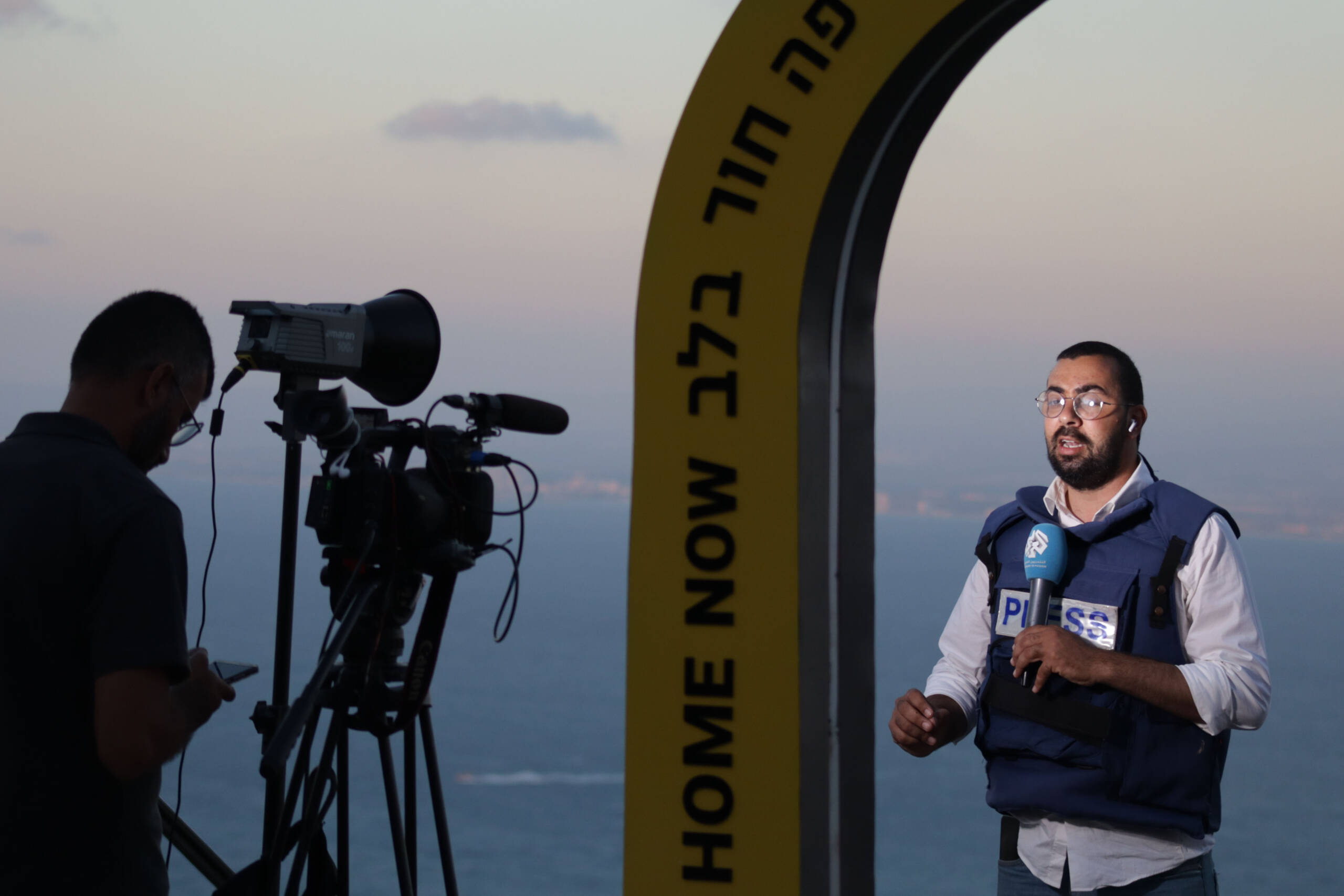
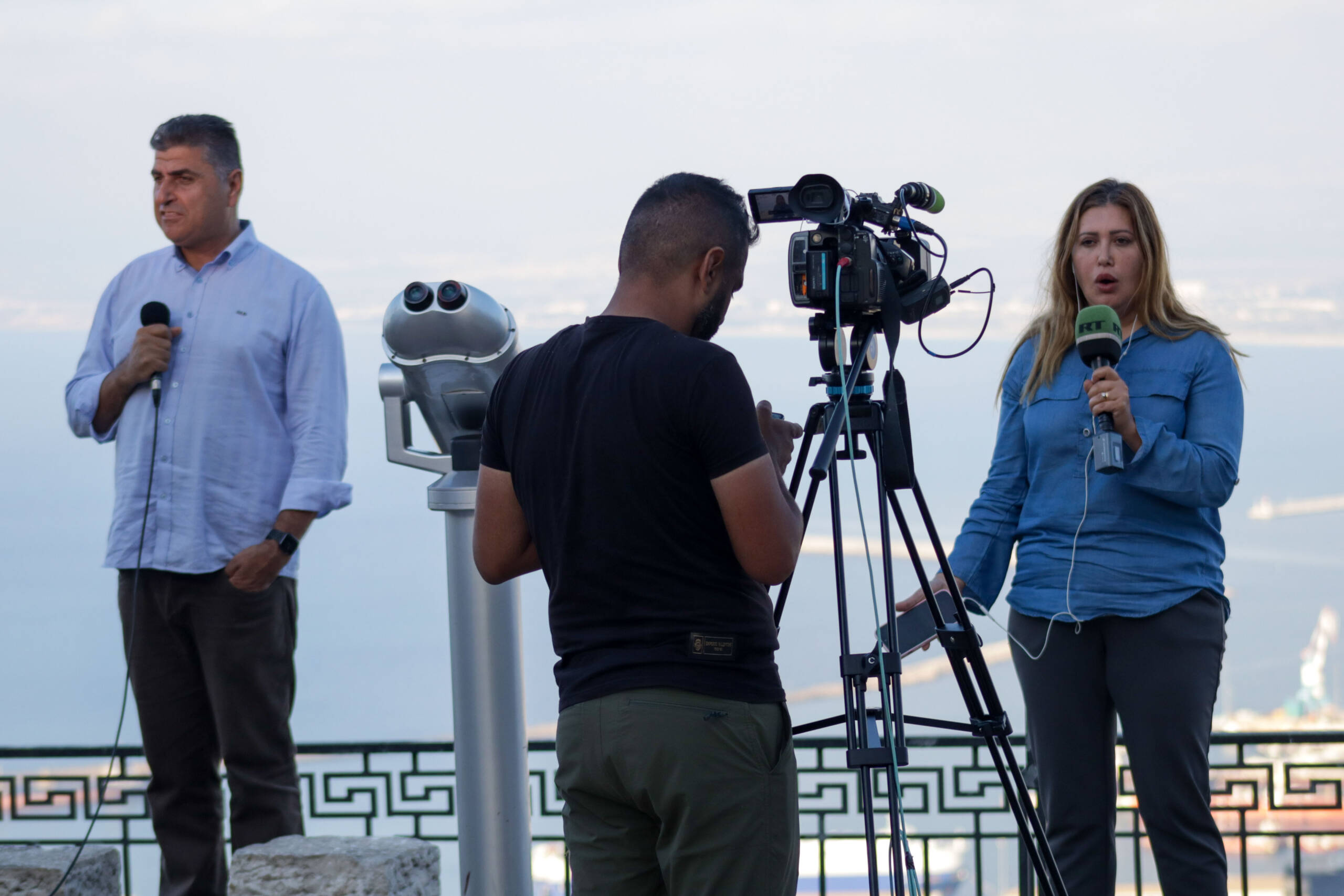
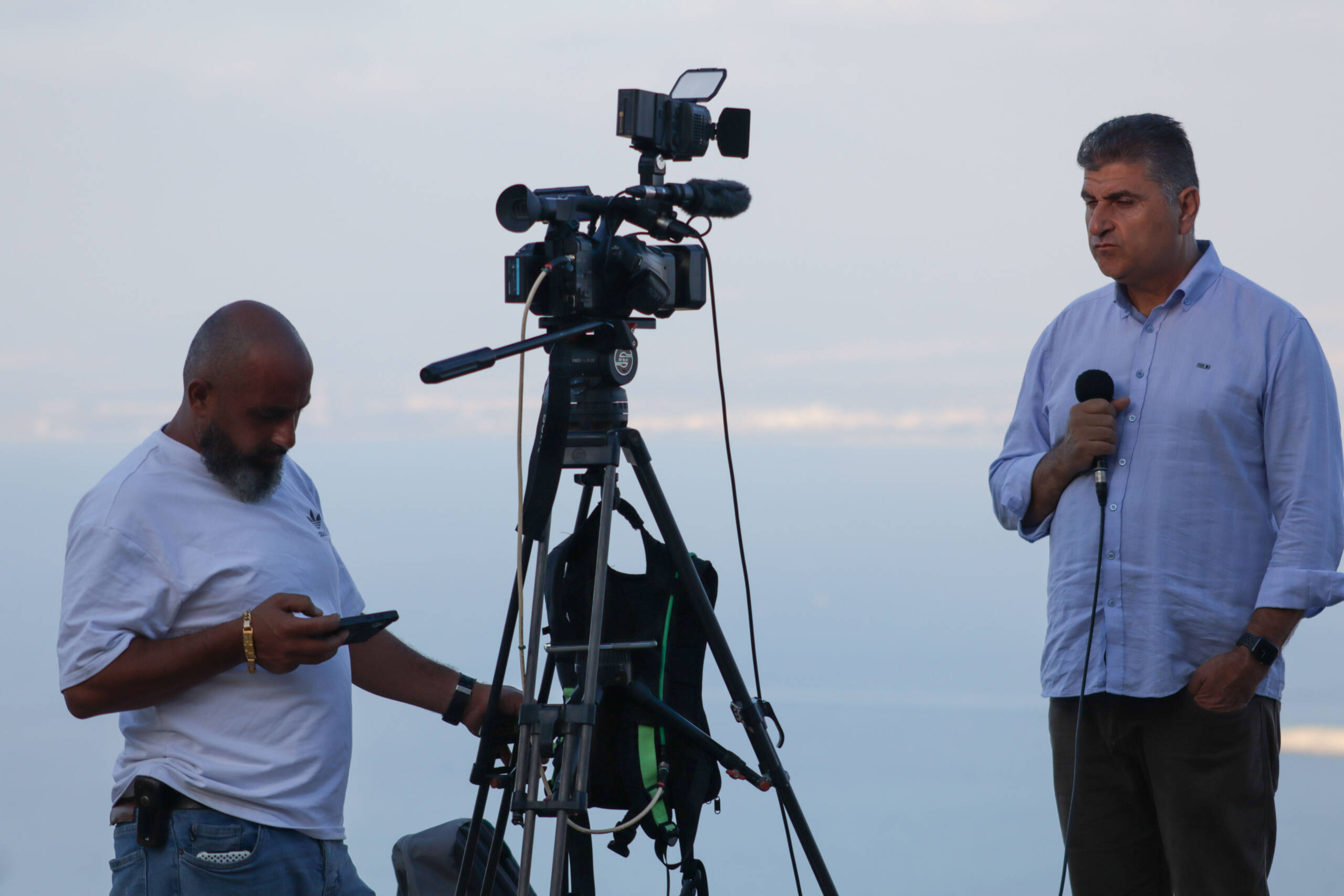
One can only imagine how the narrative must play back to viewers across the Arab world. The report delivers grim updates on clashes, rocket launches, and military movements, all while the crew is safely sheltered by the cosmopolitan comforts of Haifa. In between takes, perhaps they ponder where to enjoy a glass of wine or discuss the finer points of Israeli cuisine, far from the dust and rubble that mark Dahieh of Beirut or the ghost villages of northern Israel.
The cameras are professional, the microphones glisten under the Mediterranean sun, and the reporters’ voices convey all the tension and seriousness one expects when reporting on a war. But the disconnect between words and the serene surroundings is almost comedic. It’s as if the war is a distant thing, out there, beyond the horizon, where someone else is fighting it. Here in Haifa, the only real battle might be deciding between a swim in the hotel pool or a quick jaunt to a nearby café, interrupted once or twice a day by alert of Israeli Homefront.
No doubt, there’s real journalism happening, but perhaps next time the networks might consider a backdrop that better suits their narrative. Or perhaps, the contrast is the point—a subtle reminder that the war they cover isn’t as close as their viewers might think. In any case, they continue, ever valiant in their efforts to convey conflict from the tranquil heights of Merkaz HaCarmel, their proximity to danger best measured in kilometers, not meters.
Leave a Reply